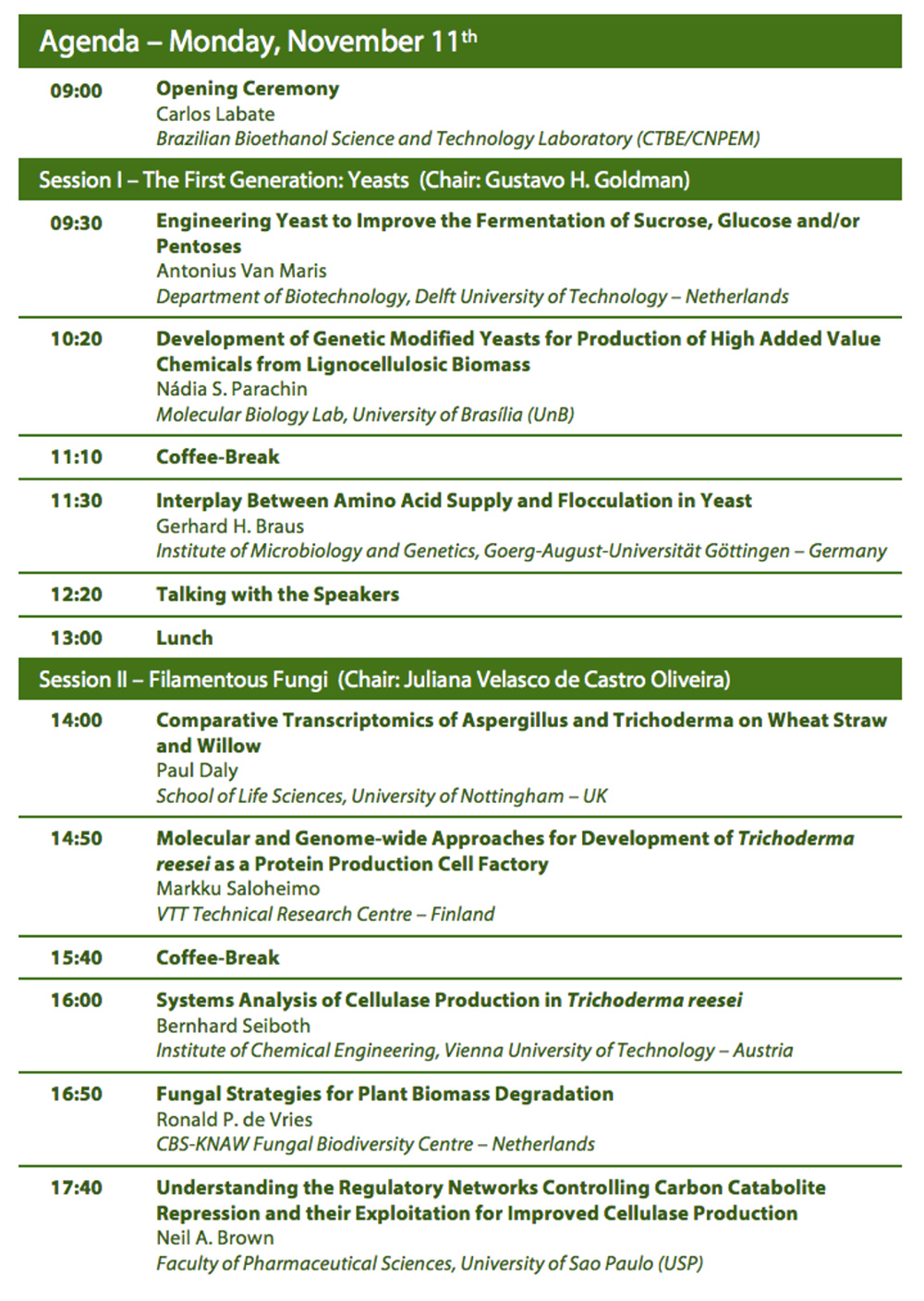
Date: November 11 and 12th , 2013.
Place: CTBE Auditorium, Campinas, Brazil.
Presentation: Currently, ethanol production in Brazil is based exclusively on first-generation, using the sucrose content from sugarcane technologies. If other areas of the plant (bagasse and straw) were used for the fuel production, they would generate an additional ethanol amount of 3700-4000 l / ha (9700-10000 l / ha full), reducing the need for land use between 33 and 38%. The development of new and efficient technologies for the hydrolysis of sugarcane bagasse could improve considerably this energy balance and create the basis for the second generation of ethanol. The high cost of hydrolysis of biomass polysaccharides to fermentable sugars endures as the biggest challenge to the economic viability of cellulosic ethanol. Whereas the cellulases and hemicellulases costs contribute substantially to the final price of the product, further studies on understanding and improving the efficiency and productivity of hemicellulase / cellulase are crucial. In this context, the “Second Generation Bioethanol 2013: Enzymatic Hydrolysis” will assist on disseminating this cutting edge research area in Brazil, but also strengthen partnerships between the National scientific community and Brazilian Center for Research in Energy and Materials (CNPEM). This is the fourth edition of this event since 2010 over three hundred people registered and attended the previous workshops. In the first three years, the main discussion themes were the hydrolysis processes performed by fungi, relations between the structure and function of enzymes and aspects associated to bioprocesses, metagenomics applied biofuel, protein production and signal transduction in filamentous fungi, pretreatment versus enzymatic hydrolysis and molecular evolution of enzymes. This year will also be included sessions on metabolic engineering in filamentous fungi and yeast, new energy sources, and enzyme structure and function.
Financial Support: CTBE/CNPEM and FAPESP
WORKSHOP PROGRAM

